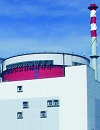 |
||
|
Syria calls for West to reconsider its approaches on Middle East as region has changed RIA Novosti, PUBLISHED May 24, 2010 Syria has called for the West to reconsider its approaches on the Middle East as the region has changed, Syrian Arab News Agency reported citing Syrian President Bashar al-Assad. "The West must understand that the region has changed and that the language, policy and approach used by the countries in the past in regards to the region are no longer acceptable, as is a silence towards Israel's violations and its attempts to spark wars and conflicts," Syrian president said during his meeting with French Foreign Minister Bernard Kouchner in Damascus on Sunday. "It is also no longer acceptable to keep silent over Israel's violations and its sowing the seeds of sedition in the region," he continued. "If the West wants security and stability in our region, it must start playing an active role to rein in Israel and curb its extremist and dangerous tendencies on the region's security and stability." The sides also discussed Iranian nuclear issue with Syrian president stressing the importance of the agreement signed between Iran, Brazil and Turkey. He added that the deal became evidence that the accurate approach leads to positive consequences. Last week Israel strongly criticized Russia's plans to supply arms to Syria, saying the move would not help efforts to bring peace to the Middle East. Israeli FM said the regime of Syrian President Bashar al-Assad was not interested in peace, and called "naive" anyone who believed Syria would be ready "to cut ties with Iran and Lebanon's Hezbollah militia" in exchange for a return of the Golan Heights, occupied during the 1967 Six Day War by Israel. A diplomatic source in Damask told RIA Novosti that Kouchner urged all sides to exercise greater restraint and respect a resolution of the UN Security Council which ended the Israeli-Hezbollah war in Lebanon in the summer 2006. Military-technical cooperation between Syria and Russia has always been an issue of criticism from Israeli authorities, who express a strong concerned over increase of Syrian defensive potential, but also see a threat of transfer of weapons to Lebanese or Palestinian radicals. Israeli-Palestinian direct peace talks came to a halt in December 2008, when Israel launched an attack on the Gaza Strip in a bid to put an end to the firing of homemade rockets at southern Israel by Palestinian militants based in the enclave. The conflict left 1,300 Palestinians and 13 Israelis dead. Topics: Asia Other news: The Temelin tender promises to be the most fun of all tenders for the construction of nuclear facilities. Russia to invest $1 bln in Namibia uranium deposits "We are ready to guarantee investments," Kiriyenko said. Iran, IAEA must sign agreement to start nuclear swap - official Uranium from Iran shall be delivered to Turkey within a month. |
Hero of the day 
Obama nuclear summit: A minor success Further proof of this fact was provided by Obama Nuclear Security Summit held in Washington on April 12-13. However, this goal is unlikely to be achieved in four years. INTERVIEW
Christophe Behar OPINION
AtomInfo.Ru |

